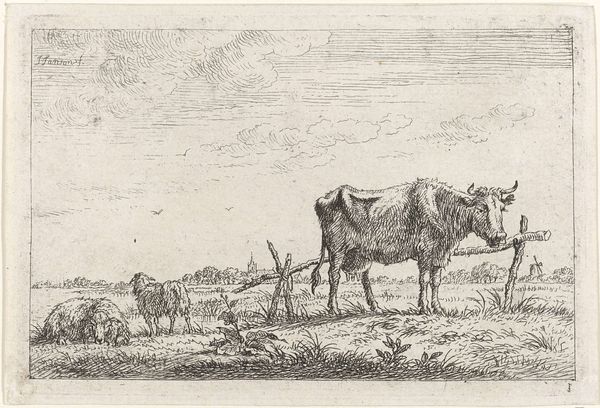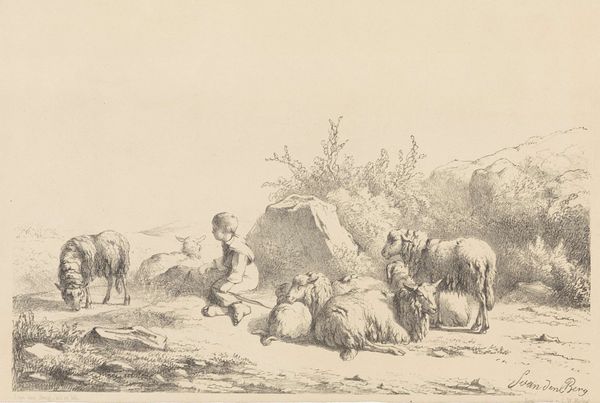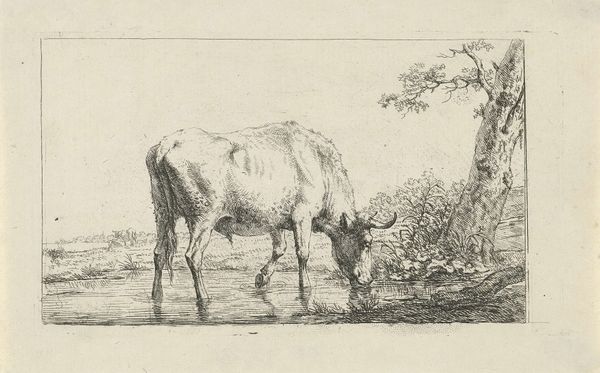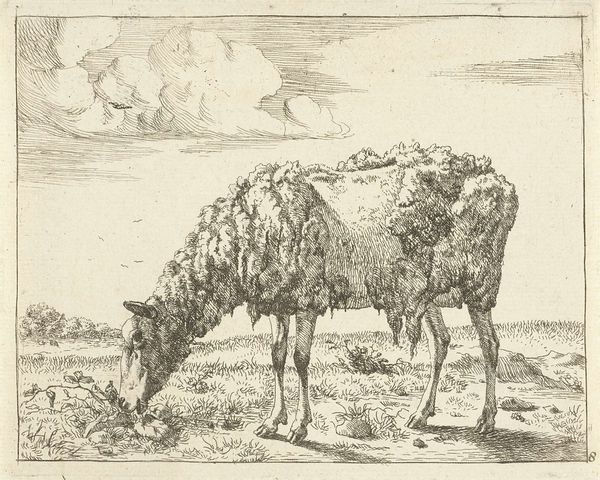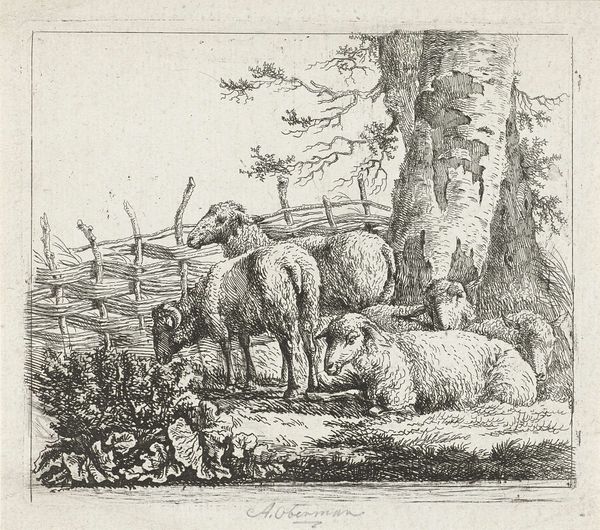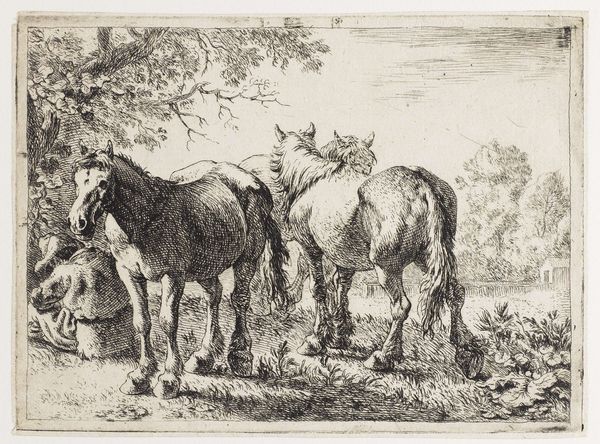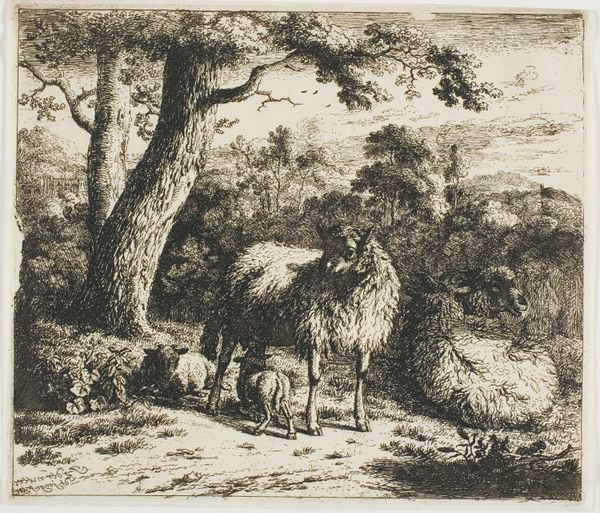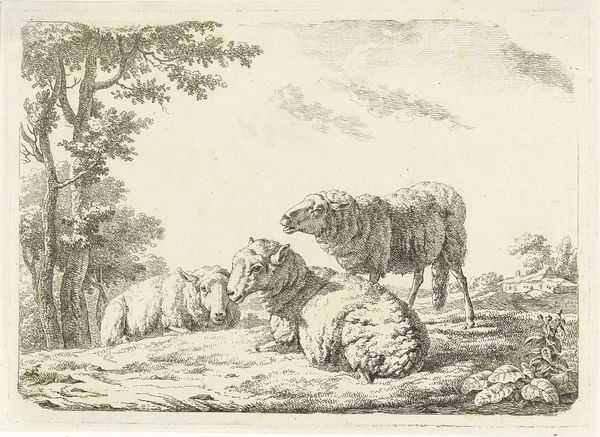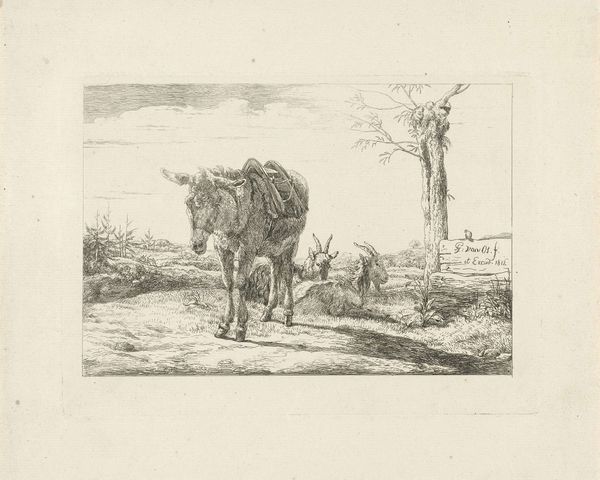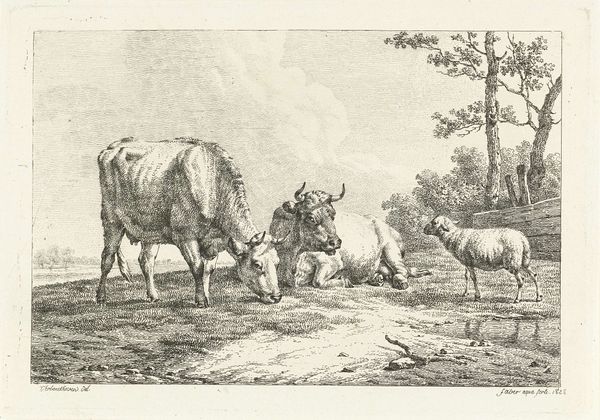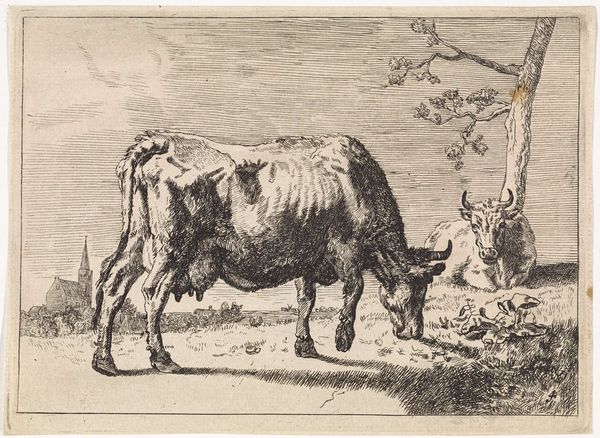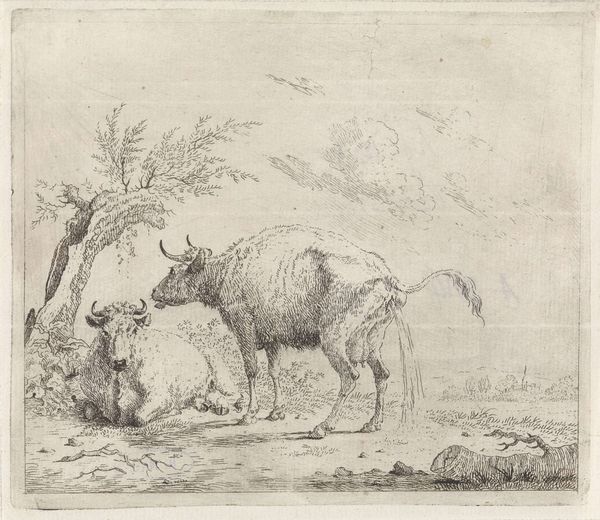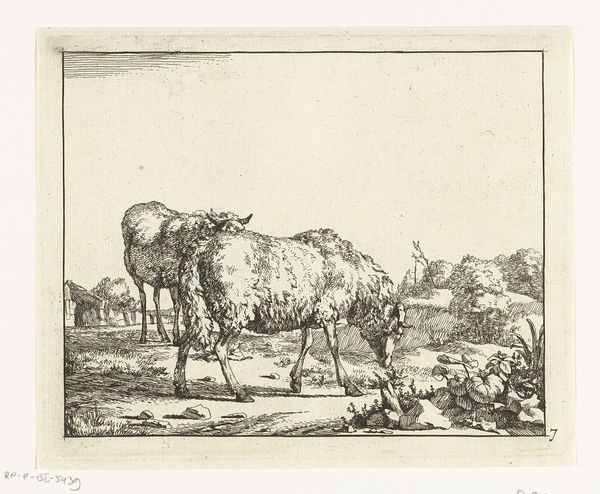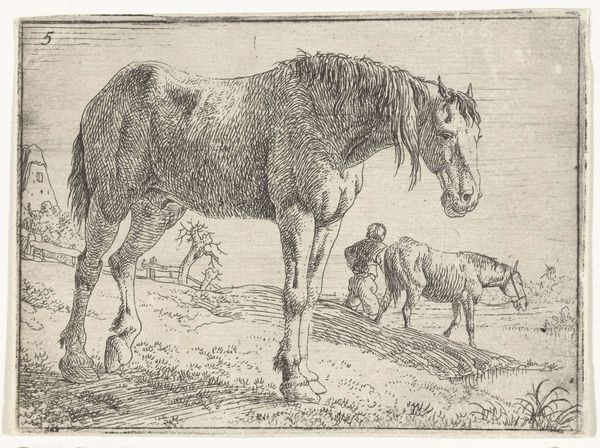
drawing, pen
#
drawing
#
pen sketch
#
pencil sketch
#
landscape
#
figuration
#
line
#
pen
#
realism
Dimensions: height 93 mm, width 146 mm
Copyright: Rijks Museum: Open Domain
Simon van den Berg made this etching, "Landschap met drie schapen," using metal plates and acid. The fine lines, creating textures of wool and foliage, depend on the artist's deft hand and the mordant action of the acid. Van den Berg would have coated the plate with a wax resist, then scratched his design into it, exposing the metal beneath. When dipped in acid, the exposed lines would be bitten into the plate, allowing for the transfer of ink to paper. The print medium was crucial to the development of visual culture, enabling the wide distribution of images. Through the multiplication of scenes like this one, a romantic vision of rural life could be shared across geographical boundaries and class divides. This small print encapsulates the economic shifts of its time: an artwork made possible by industrial means, yet depicting a pre-industrial, pastoral scene. Consider the labor involved in creating this image: from the mining of the metal to the skilled work of the artist. Appreciating these processes allows us to understand the social and economic context of this seemingly simple landscape.
Comments
No comments
Be the first to comment and join the conversation on the ultimate creative platform.
